As part of the creation of a catalogue raisonné for the work of Eric Ravilious, the public is being asked to help locate missing watercolours

CHEERFULNESS kept creeping in,’ remarked Douglas Percy Bliss and that is one of the reasons why his friend and fellow artist Eric Ravilious is so warmly regarded. Despite the general absence of humans in much of his work—he was not good at them and, when they do appear, they may seem slightly surreal—the manmade nature of his subject matter, not just machinery or domestic interiors, but even the Downs with their chalk figures, gives his watercolours humanity and spirituality.
Ravilious (1903–42) is sometimes said to have been overlooked, but if that is at all true, it was only by an art establishment in thrall to the cult of the contemporary. He has always been popular with a wider public that knew him for his ‘submarine Dream’ series of lithographs or through the Coronation mugs and other ceramic designs that made him a postmortem presence in the homes of 1950s Britain.
At all events, he certainly has not been overlooked during the present century. There have been major exhibitions: in 2003 at the Imperial War Museum curated by Alan Powers; in 2015 at the Dulwich Picture Gallery curated by James Russell; and last year at Towner Art Gallery in eastbourne, his home town. There have also been less prominent, but very popular shows at Bristol and elsewhere and there have been numerous books. More will follow in the wake of the forthcoming Edward Bawden show at Dulwich.
Bawden and ravilious were the centre of the Great Bardfield Group of artists who settled in the essex village and, with their friends and associates—including the nash brothers, ravilious’ wife, Tirzah Garwood, and Thomas hennell, who, like him, died as a War Artist—they continued and expanded the English tradition of romantic landscape.
Bu hikaye Country Life UK dergisinin January 10, 2018 sayısından alınmıştır.
Start your 7-day Magzter GOLD free trial to access thousands of curated premium stories, and 9,000+ magazines and newspapers.
Already a subscriber ? Giriş Yap
Bu hikaye Country Life UK dergisinin January 10, 2018 sayısından alınmıştır.
Start your 7-day Magzter GOLD free trial to access thousands of curated premium stories, and 9,000+ magazines and newspapers.
Already a subscriber? Giriş Yap

Kitchen garden cook - Apples
'Sweet and crisp, apples are the epitome of autumn flavour'

The original Mr Rochester
Three classic houses in North Yorkshire have come to the market; the owner of one inspired Charlotte Brontë to write Jane Eyre
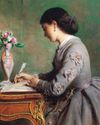
Get it write
Desks, once akin to instruments of torture for scribes, have become cherished repositories of memories and secrets. Matthew Dennison charts their evolution
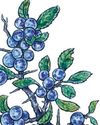
'Sloes hath ben my food'
A possible paint for the Picts and a definite culprit in tea fraud, the cheek-suckingly sour sloe's spiritual home is indisputably in gin, says John Wright
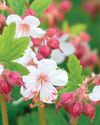
Souvenirs of greatness
FOR many years, some large boxes have been stored and forgotten in the dark recesses of the garage. Unpacked last week, the contents turned out to be pots: some, perhaps, nearing a century old—dense terracotta, of interesting provenance.
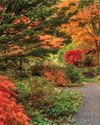
Plants for plants' sake
The garden at Hergest Croft, Herefordshire The home of Edward Banks The Banks family is synonymous with an extraordinary collection of trees and shrubs, many of which are presents from distinguished friends, garnered over two centuries. Be prepared to be amazed, says Charles Quest-Ritson

Capturing the castle
Seventy years after Christian Dior’s last fashion show in Scotland, the brand returned under creative director Maria Grazia Chiuri for a celebratory event honouring local craftsmanship, the beauty of the land and the Auld Alliance, explains Kim Parker

Nature's own cathedral
Our tallest native tree 'most lovely of all', the stately beech creates a shaded environment that few plants can survive. John Lewis-Stempel ventures into the enchanted woods
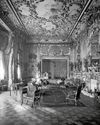
All that money could buy
A new book explores the lost riches of London's grand houses. Its author, Steven Brindle, looks at the residences of plutocrats built by the nouveaux riches of the late-Victorian and Edwardian ages

In with the old
Diamonds are meant to sparkle in candlelight, but many now gather dust in jewellery boxes. To wear them today, we may need to reimagine them, as Hetty Lintell discovers with her grandmother's jewellery